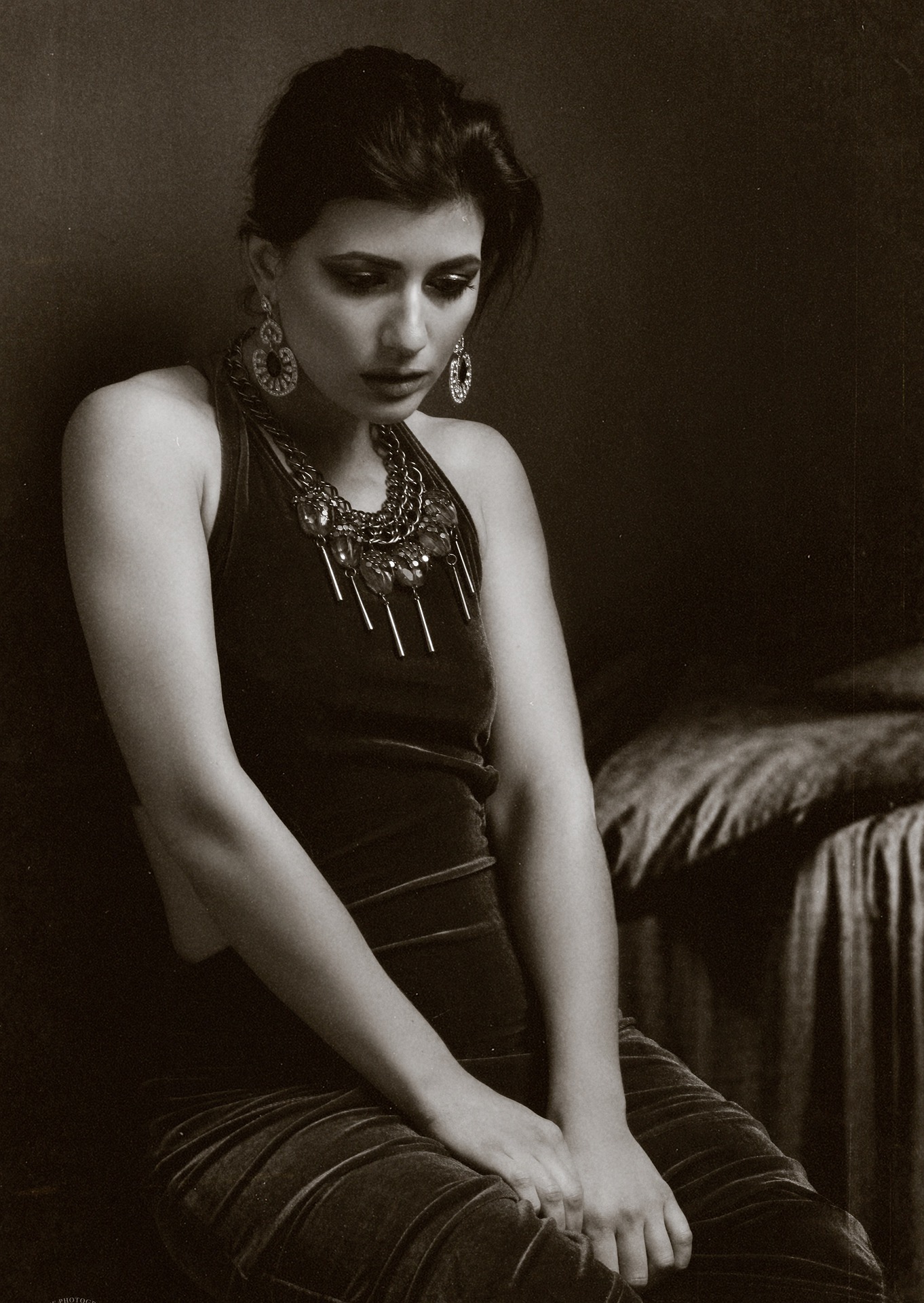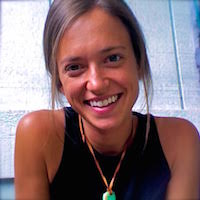The lingering scars of our emotional wounds all depend on how we perceive, process, and adapt to terrible events: the things that break us.
All I can offer the world are small revelations, tiny treasures that worked for me—the motherly angelic hands that pulled me out of the volatile turmoil of my own mind.
The thing with trauma is it affects us everywhere. It can effect us on a cellular level: physically, emotionally. However, it’s the twisted thoughts that begin to poison our minds that are the most damaging consequence of all.
The thing about a moment—whether it coaxes from our hearts shame, or embarrassment, or hurt—is it often radically changes the way that we think about ourselves; our purity gets lost under grime, under a slowly-built, bitter foundation of untrue, dark beliefs.
We can reflect on how trauma made us feel, yes, but we should also question the way it made us think about ourselves.
It could start as a pebble-sized event, like bringing home bad grades that made your parents disappointed in you; a sudden thought ripples along your brain, and after a time, you believe stupidity is something to be unabashedly ashamed of and being wrong makes your stomach sink; you want to become invisible.
Or, perhaps, it’s a larger pebble:
When my father was diagnosed with brain cancer, I was 13 years old. It was a few weeks before Christmas; he gave me candy before he told me. I prayed to God to heal him, but God failed me. That following summer he had his first brain surgery, in the frontal lobe; my father’s body came home, but he did not—his mischievous laughter was gone, his jokes, his sparkle.
I began to wonder what made us who we really are. Was it our souls or the lobes of our brain? For if it was our brain after all…did a soul matter?
The next year and a few months are a time I do not like to remember, because to remember is an insult to who my father really was: an intellectual, poet, songwriter, inventor, an innovator fascinated with inquiry—a funny, yet shy, gentle man. All of a sudden he was frail, bald, and the sunshine behind his eyes died. His sweater became larger, as the person underneath became weak.
I was 15 by then, and a dreamer, a believer in happy endings. I was angry at a god I was sure wasn’t real anymore; and I was especially angry with my father—for giving up, somehow. The anger that built in my chest and heart, at this time, was an anger I would come to carry as a friend to this day. This anger would shape my reactions, fuel my decisions for many years, but first, naturally, I directed it at my father—my sick father.
I will not burden you with the words that would come to haunt me as whispers in the dead of night; I will only burden you with this: at one point during that year, instead of praying for life—for what was life if you couldn’t remember who you were anymore?—I prayed to the darkness that my father would die.
The week of Homecoming, sophomore year, while my friends struggled over dates and pretty dresses, Hospice retreated from our living room, and the spiritless shell of my father’s body took it’s last breath. I plunged into sadness, but what sickened my soul more—what started to change how I saw myself in the mirror forever—was that while I felt loss, empty, and a hole in my chest, relief also coiled next to my heart; relief softened my sobs.
I couldn’t believe myself, and for the first time, I held onto this thought: I’m a bad person.
This one unknown belief started to shape everything.
I believed that I was not worth genuine kindness, and my own kindness became an apology to everyone I met, as if exerting every kindness to a stranger, friend, or such would finally grant me the forgiveness I so craved from my father.
I opened my heart to cruel people—their sharp tongues were smoother than any thought I was already thinking about myself.
Sometimes, the things that broke us continue to hurt us, to break us again. People always say, “We accept the love we think we deserve,” but what if it’s, “We accept the pain we think we deserve?”
I now live in Colorado, and when people ask how I ended up here, I always make a joke that, “I was hellbent for San Fransisco, to live as a hippie yoga teacher in the big old city, but only made it halfway (from Michigan).”
They laugh because they don’t notice the ellipsis—the lie.
The truth missing like a lost puzzle piece; when people can see most of the picture, they don’t bother with the unfilled pieces.
They will never know:
That I did, indeed, make it to San Fransisco—that I was there for three nights. They will not know that on the first night, a boy asked why my car was so full of things in the hotel parking lot. That he asked if I was alone, suggested I come meet his friends, he’d introduce me to the city; I protested that I had an early interview the next morning—but I so hated to disappoint people.
They will not know:
I gave in to one drink—that I knew in my gut something was wrong when his friends never showed. I said it was kind when he offered to walk me back to my hotel room—I ignored how I couldn’t breath.
I feared being seen as unkind, disliked—I so feared not to be seen as a good person. I worried more about making him feel uncomfortable, despite my heart racing.
For, you see, I believed I was truly a bad person—I had to do everything to convince the world I was good.
They won’t know:
That I was frightened when he forced his way in to my hotel room; they won’t know that the sex was fast, and I stared at his tattoos—that he kissed me on the cheek when he left.
They won’t know:
That I wondered how I got it all wrong. He said, “I’ll stop by again later.” They won’t know that after he left I locked the door, put a chair under the handle, and cried in the shower, feeling dirty to the depths of my core, but the scalding water could wash nothing away.
They won’t know:
That I clung to the pillow at 2 a.m., eyes wide, as he pounded on the door screaming my name.
They won’t know:
I fell into a pit of loneliness, a chasm of shame; my self-hate flourished like a jungle floor, eating me alive—all the while, for the world, I smiled.
And there, that thought will rise, again—I’m a bad person.
The glory of living life is that while there are so many things that shatter our perception of self—that cause our self-beliefs to become tainted, untrue, dark—there are myriad ways to slowly piece ourselves together again.
These are my small treasures:
Self-knowledge
A yoga teacher once told me, the first step toward self-love is self-knowledge; I cannot agree more. How often do we pause and ask ourselves, What do I believe about myself? It’s a terrible grief to realize the depth of your own self-loathing, but it’s a weird, heavy liberation. We must dig into our minds, like anthropologists piece together the past. We must become fascinated by the dark that lives within us, to unravel the revelation that we are light.
Nature
Mama Earth’s eyes bear no judgement. To find comfort in the wild—instead of floating through life in the cushion of it—reminds us of our strength, adaptability, and how one can shed layers like crumbling dry leaves.
There is no better medicine for a chaotic mind than a walk through trees; watching the clouds float lazily across vivid blue; the physical feat of scaling a mountain; singing with colorful birds; the whist of a foxes tail as it sneaks along; the decay of red and gold leaves; the promise of budding trees.
If you don’t believe in magic, or yourself, head to the wild.
Yoga/Meditation
Slow asana, stillness, watching the breath and our thoughts, while at times is excruciating, is how we will facilitate self-awareness. Our yoga mat is not a place we arrive to escape our lives—it’s were we go to enrich them, to sit with everything, no more running away from ourselves.
Breathwork
Conscious circular breathing in a sacred container transformed my life. Quite simply, it was breathing deep into the body, a three-part breath (through the nose), then exhaling it all through the mouth—without stopping. Holotropic breathwork is pretty famous, but this is all two-part breathing through the mouth (if your an over-thinking, anxiety-prone person like me, avoid this). I had profound visions, laughter, and revelation of the untrue things I believed about myself. This is different than pranayama work in the yoga tradition. Try it.
Sound Healing
Everything is vibration; we are fools to think that the deep grind of cars or the vibration of blistering music or the chaos of town doesn’t affect us. I’ve discovered the magic of sound healing requires a combination of two things: intention to heal and beautiful, celestial instruments. Crystal bowls are my most favorite; they are sweet friends that settle me into myself, a sense of calm, and a meditative state—the state where all our answers, our true natures, reside.
Art
Putting together words to convey a feeling, a story, an idea, is my art. Dancing. Painting. Singing. Decorating. Making jewelry. Baking. They are others. Art is how we understand our experiences, express our humanity, and pull the poison from our bones. To deny these pleasures is to deny our humanity.
Community
Oh, I could tell you all the ways people frighten me—how I’d rather hide in my home and get lost in books then venture out into the world, but conversations with others, small communities at a gym or yoga studio or book club or school or neighborhood give us purpose. To be of service to our community, or neighbor, or stranger, is a gift. When people love us as we are, we start to believe we are worthy of it.
Once we acknowledge an untrue belief, we see how it shaped our lives. But, once we start to tackle these beliefs, we can tenderly start to reshape our present moment—our future.
Don’t be afraid to go within.
~











Read 12 comments and reply